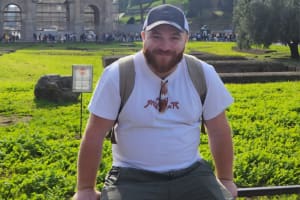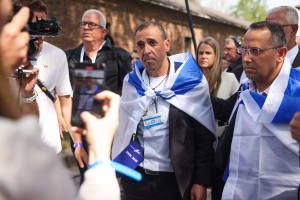Growing support for Israel from within Iran

Israelis are expecting an Iranian retaliatory attack following the assassination of Hamas political leader Ismail Haniyeh in Tehran last Wednesday. While Israel has neither confirmed nor denied its involvement in the explosion that killed Haniyeh, concerns are mounting that Iran's response might lead to a full blown war.
According to several sources within Iran, however, there is widespread support for Israel from among the Iranian people themselves.
People from different cities in Iran are reportedly voicing their belief that the vast majority of citizens oppose the Islamic Revolutionary Guard Corps (IRGC) and are hoping Israel will bring down the regime, according to Ynet News reporter Emily Schrader.
Fuad Shukr, the Hezbollah commander thought to be behind the strike on Israel that killed 12 Druze children in Majdal Shams, was eliminated by Israel in a targeted attack.
As Israeli citizens stock up on supplies in the event of an attack, many Iranians are also waiting, hoping that Israel will finally overpower IRGC forces.
“The Islamic regime in Iran is the head of the snake,” says Ramin Parsa, Iranian activist and dissident now living in Israel. He is not the only one using that figure of speech, as many Iranians in the diaspora have been voicing their support for Israel and denouncing the regime as “the head of the octopus,” or "the snake," due to its funding and training of proxies around Israel's borders.
On Israel's southern border, there is the Hamas terror organization in Gaza. On the northern border, there is Hezbollah in Lebanon. The Houthis in Yemen, Palestinian Islamic Jihad in Gaza and other players in Syria and Iraq - they are all Iranian terror proxies in the region, designed to eliminate Israel.
But Iranians themselves are distancing themselves from the rhetoric of the Iranian Republic.
“It’s time for judgment over this evil regime,” Parsa boldly asserts on his public Facebook page. “These terrorists have caused so much suffering, pain and death. People want them to be gone.”
After 45 years of the oppressive regime, many have fled the country. Iranian dissidents in Western cities have been marching in support of Israel and denouncing Hamas in the face of huge pro-Palestinian crowds.
There were also scenes of celebration among Iranians in several countries after President Ebrahim Raisi, known as “the Butcher of Tehran” was killed in a helicopter accident in May, highlighting the prevailing sentiment among the people.
Even more extraordinary is the expression of support for Israel from within Iran itself.
Multiple photographs of graffiti in Farsi have appeared across the Islamic regime with messages of support, encouraging Israel to strike. Crowds at a football stadium in Tehran booed the Palestinian flag, demanding its removal. There have also been isolated expressions of banner or flag waving in support of Israel.
“I personally am not scared of Israeli retaliation because I know that IDF and Israeli officials see us Iranian people on their side and would do whatever they deem necessary to minimize the collateral damage as they did with the case of Haniyeh," one Iranian told Schrader.
Another said: “We are really against the regime of the Islamic Republic and Hamas, Hezbollah and the Taliban, who are all connected with the murderous regime of the Islamic Republic…we hope that all these people will be destroyed as soon as possible.”
While many are eager to see Israel target the regime, there is also concern about potential violence spreading to Iranian cities. Despite this, the strong desire to end the corrupt regime appears to outweigh fears of an Israeli strike.
“This is not just my opinion,” an Iranian man assured Schrader, unwilling to provide his name for fear of severe reprisals. “We all wish to see the destruction of the Islamic Republic as soon as possible.”

Jo Elizabeth has a great interest in politics and cultural developments, studying Social Policy for her first degree and gaining a Masters in Jewish Philosophy from Haifa University, but she loves to write about the Bible and its primary subject, the God of Israel. As a writer, Jo spends her time between the UK and Jerusalem, Israel.
You might also like to read this:















